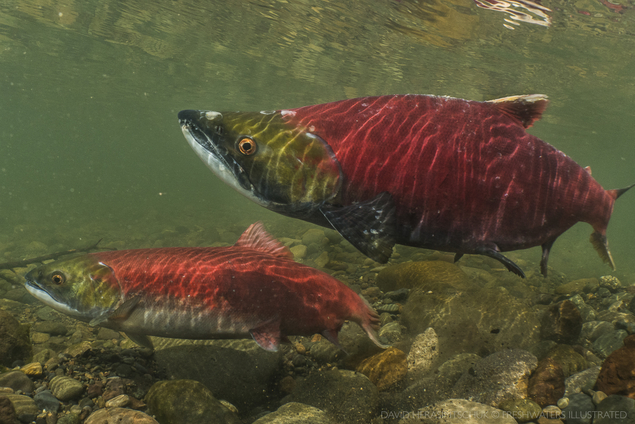In August 2016, Republican Senator and noted climate change denier Jim Inhofe told conservative radio host Eric Metaxas that...
“This is the biggest challenge as we have at the moment as a company,” Ben van Beurden, chief executive of oil giant Shell, said recently. “The fact that societal acceptance of the energy system as we have it is just disappearing.”
Speaking at the annual CERAWeek energy conference in Houston on March 9, van Beurden described the growing tensions between his industry, which has created our fossil fuel dependent energy system, and the public, which is demanding a switch to clean energy: “I do think trust has been eroded to the point where it starts to become a serious issue for our long-term future.”
The world’s largest oil companies are increasingly faced with public pressure to do something about their impact on climate change. And increasingly we’re seeing their chief executives responding. The question is though, how much is for real and what's just greenwash?
He’s only been in his post for nine months, but you’ve got to wonder if climate minister Nick Hurd is already bored of answering questions from climate science denier MPs.
Yesterday, Hurd had to point MP Peter Lilley to the wide body of evidence showing human-caused climate change is a significant problem for snow and ice.
Lilley was one of only five MPs to vote against the UK’s Climate Change Act in 2008. He sits of the Board of Trustees of the climate science denying Global Warming Policy Foundation, founded by former chancellor Nigel Lawson.
A UK energy company with ties to chancellor Philip Hammond and the Oxford Philharmonic has just signed an agreement to develop a highly polluting coal bed methane power plant in the east of Botswana.
London-based company Independent Power Corporation (IPC), which develops and operates power plants around the world, has signed an agreement with Australian-firm Tlou Energy to jointly develop a 100 megawatt power plant as part of the Lesedi coal bed methane project.
Coal bed methane (CBM) plants come with significant environmental risks, including contamination of soil and underground water as well as generating significant greenhouse gas emissions through methane leaks.
There are concerns the Botswana government does not have sufficient checks and balances in place to ensure companies such as IPC and Tlou Energy are subject to robust environmental regulations in a country ranked third for its level of inequality, according to the World Bank.
Big oil company Statoil yesterday released its ‘climate roadmap’. It said the plan “will further strengthen Statoil’s industry leadership in climate performance”.
A closer look shows that Statoil — a major player in the UK’s North Sea oil and gas industry — doesn’t plan to change much, however. The Norwegian oil company plans to still be a big oil and gas company decades from now, ignoring warnings that its carbon bubble may burst as the world moves away from fossil fuels to cut emissions and tackle climate change.
In a five minute video accompanying the roadmap’s launch, Bjørn Otto Sverdrup, Statoil's senior vice president for sustainability, said “it is very important for energy companies to take a stand and help to contribute to reduce emissions”.
People across the UK agree that climate change is an immediate threat already taking place, a new survey by the European Perceptions of Climate Change Project shows.
The report published on 8 March explores the public perception of climate change across France, Germany, Norway, and the UK. It finds that in Britain, 86 percent of people agree climate change is happening and almost half (45 percent) believe it will affect “people like me”.
However, while the majority of respondents across Europe accept that climate impacts are occurring, most feel that other countries will be more affected than their own.
The government has announced more financial help for the North Sea oil and gas industry.
Chancellor Philip Hammond today announced plans to establish a panel of experts to decide on the best way to squeeze every last drop out of the region’s oil fields in his first and last Spring budget.
The additional measures will go on top of around £2.3 billion the industry received in subsidies from the government over the past three years.
Oil giant BP is one of the corporate partners sponsoring this year’s International Women’s Day on 8 March under the slogan “Be Bold for Change”.
In a promotional video for the day, BP says that being “bold for change” at its firm means “having the courage to change perceptions and the knowledge and expertise to change ideas. It’s having the shared dream of changing communities” – cue lots of shots of cute children from various ethnic backgrounds.
Just on the face of it this is already problematic. It’s all well and good for BP and a host of other companies to be addressing their gender balance issues – BP says it wants to ensure a quarter of its group leaders are women by 2020.
But BP’s use of the International Women’s day slogan gives it a whole new slant in the context of the impacts of climate change, transport emissions, and BP’s industrial activities around the world.
By Ruth Hayhurst, at Drill or Drop.
A High Court judge has granted an injunction outlawing public access to Cuadrilla’s shale gas site at Preston New Road, near Blackpool.
But his honour Philip Raynor QC refused the company’s application to exclude from the injunction a protest area on land about 175m from the site entrance.
He said the area, measuring 25m by 25m, was too small to be reasonable and could be a source of “increased anger” if protest was limited to it.


























































